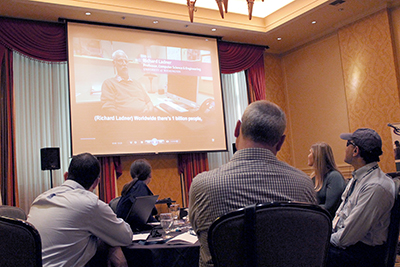Resources

The AccessComputing website contains
- information about project goals,
- the application of evidence-based practices toward project deliverables,
- resources for students with disabilities,
- educational materials for postsecondary faculty and staff,
- information about partners and collaborators, and
- program applications.
AccessComputing maintains a searchable database of frequently asked questions, case studies, and promising practices related to how educators and employers can fully include students with disabilities in computing activities. The Knowledge Base can be accessed by following the “Search Knowledge Base” link on the AccessComputing website.
The Knowledge Base is an excellent resource for ideas that can be implemented in engineering programs in order to better serve students with disabilities. In particular, the promising practices articles serve to spread the word about practices that show evidence of increasing the participation and success of people with disabilities in computing.
Examples of Knowledge Base case studies, promising practices, and questions include
- How can I make my computing department more accessible to students with disabilities?
- What adaptive technology is typically provided to students with disabilities on postsecondary campuses?
- What are specific computer applications that can assist students with learning disabilities?
- Are there any web-based tutorials on accessibility?
- How can principles of universal design be used to construct a computer lab?
- Are there scientific and graphing calculators that can be used by students who are blind?
Individuals and organizations are encouraged to propose questions and answers, case studies, and promising practices. Contributions and suggestions can be sent to accesscomp@uw.edu.
For more information on AccessComputing, universal design, and accessible computing and IT education, review the following websites and brochures:
- To find more information on universal design, visit the Center for Universal Design website.
- To learn more about and get involved with AccessComputing, visit their website.
- For resources specifically designed for faculty, consult The Faculty Room.
- To discover how to become an industry partner, learn more at the Industry Partners page.